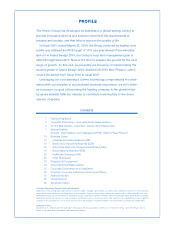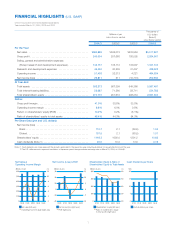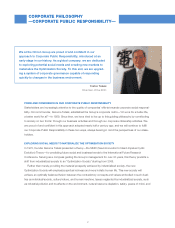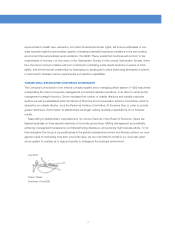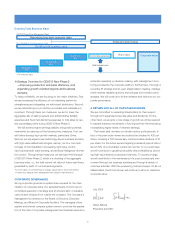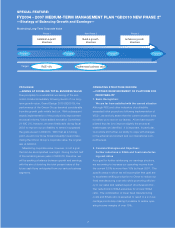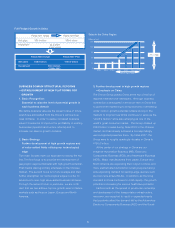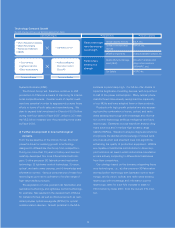Omron 2004 Annual Report Download - page 4
Download and view the complete annual report
Please find page 4 of the 2004 Omron annual report below. You can navigate through the pages in the report by either clicking on the pages listed below, or by using the keyword search tool below to find specific information within the annual report.
Yoshio Tateisi
Chairman of the BOD
CORPORATE PHILOSOPHY
—CORPORATE PUBLIC RESPONSIBILITY—
2
We at the Omron Group are proud of and confident in our
approach to Corporate Public Responsibility, introduced at an
early stage in our history. As a global company, we are dedicated
to exploring potential social needs and creating new markets to
materialize the Optimization Society. To this end, we are upgrad-
ing a system of corporate governance capable of responding
quickly to changes in the business environment.
PRIDE AND CONFIDENCE IN OUR CORPORATE PUBLIC RESPONSIBILITY
Stakeholders are increasingly attentive to the quality of companies’ efforts towards corporate social responsi-
bility. Omron’s founder, Kazuma Tateisi, established the Group’s corporate motto—“At work for a better life,
a better world for all”—in 1959. Since then, we have tried to live up to this guiding philosophy by contributing
to society on two fronts: through our business activities and through our corporate citizenship activities. We
are proud of and confident in this approach adopted nearly half a century ago, and we will continue to fulfill
our Corporate Public Responsibility in these two ways, always bearing in mind the perspectives of our stake-
holders.
EXPLORING SOCIAL NEEDS TO MATERIALIZE THE OPTIMIZATION SOCIETY
In 1970, founder Kazuma Tateisi presented a theory—the SINIC (Seed-Innovation to Need-Impetus Cyclic
Evolution) Theory—for predicting future social and business trends to the International Future Research
Conference. Serving as a compass guiding the Group’s management for over 30 years, this theory predicts a
shift from industrialized society to an “Optimization Society” starting from 2005.
Rather than merely providing the material prosperity achieved by industrialized society, the new
Optimization Society will emphasize spiritual richness and more holistic human life. This new society will
achieve an optimally balanced fusion between the contradictory concepts and values embodied in such duali-
ties as individual/society, culture/nature, and human/machine. Issues neglected by industrialized society, such
as industrial pollution and its effects on the environment, natural resource depletion, safety, peace of mind, and


